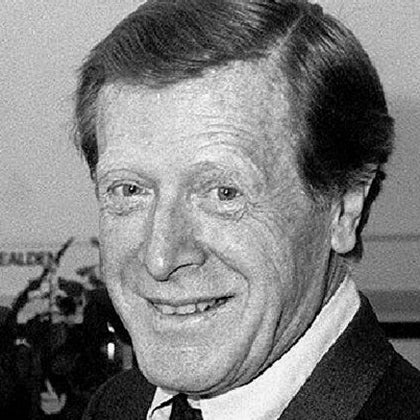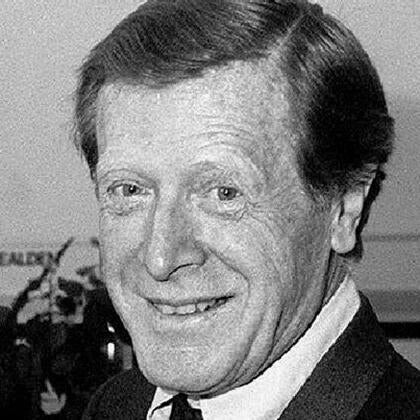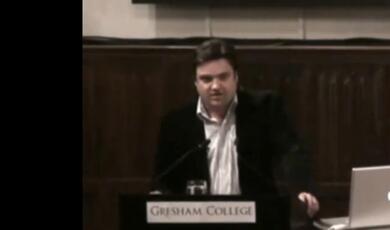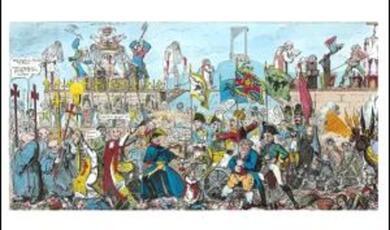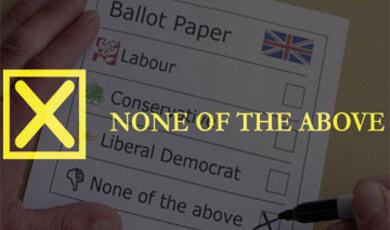Peace and Commerce: Challenges to America in World Trade
Share
- Details
- Transcript
- Audio
- Downloads
- Extra Reading
Download Transcript
The Rt Hon Sir Geoffrey Johnson Smith DL MP
This is the first time I have been invited to give a lecture. I am more accustomed to giving a speech, a subtle difference which I hope the audience will not find too superficial or even too disconcerting. In short, what I have to say is not a carefully researched dissertation but a personal observation of the American scene since I first visited the United States in the Autumn of 1949. My introduction to America was with the late Robin Day; and together we embarked on a two-man debate tour of American College and Universities.
We met Mrs Roosevelt who told us that Churchill kept her husband up far too late at night, hoping to persuade him that India should continue to be governed by the British, and she pointed out that the trouble with him was that en enjoyed ‘the old world’ too much to be converted to ‘the new world’. Eisenhower, who then headed Columbia University , felt that the solution to Europe was to draw a line on the map of Europe between those who strove to emulate the economic free enterprise culture of the United States and those who did not. We said it would not be a straight line, probably more ‘wiggly’ and no doubt change from time to time. It was not an era which the grass roots found particularly encouraging.
The natives were friendly but it was quite clear that many of them were suspicious of the socialist intentions of many of the governments in the post war period. Marshal Aid, that most generous demonstration of American concern for those civilians who had suffered so badly during the War. What contribution would that make, beyond repairs of infrastructure and the promotion of the languishing free enterprise economy of Europe ? Would those countries come back, like Oliver Twist, and ask for more? In any case, large chunks of Central and Eastern Europe were coming under the domination of Communist Russia.
To what extent would it be in the interests of the United States , which had shed so much blood and treasure, to prop up an ailing Europe ? To keep at arm’s length from Europe was tempting. We British, after all, ought to know all about isolating ourselves from – a continent just 22 miles away – the rest of Europe . Twice we had gone to war and were none too sure about the strength of democratic institutions in the countries we had helped to withstand the invasion of Nazism. Indeed, we had stood alone.
To go South via Thomas Jefferson’s lovely home in Montecello was to remind us of his famous statement at his inaugural address as President on 4 March 1801 which has helped to spark off this series of talks. I quote:
Peace, commerce and honest friendship with all nations – entangling alliances with none.”
A thought similar to a letter he wrote in December 1787 in which he said America should not entangle itself with the affairs of Europe .
[Not too far apart is the attitude of some of my own countrymen to the European Union!]
There were people we met in our debates who disliked the nationalisation of industry and in some conversations the establishment of a National Health Service. All of these things were alien to those citizens who counselled caution about coming to the rescue of a potentially bankrupt Europe ruled by Socialistic Governments with wide powers unattractive to the average freedom-loving American.
Nevertheless, there was much goodwill. But America was to change and there were three influences. The spread of communism and its threat to national security, the growth in the American economy and the military strength of the USA .
Marshal Aid, which I mentioned, was a touching gesture and did much to impress those countries which hitherto had been suspicious that post-war America would withdraw into its shell as it had done following the Versailles Treaty.
The growth of Communism in Eastern and Central Europe and the emergence of China as a powerful economic force and nuclear power led to the creation of NATO and its sustainability. It has become the most powerful political and defence organisation and the shield of democracy in the Western World. Its inception marks a big and final step in the decline of neo-isolation but there remained America’s vulnerability in the Pacific Ocean, and exposure which was all too vivid in the minds of those who recall the day of infamy when Pearl Harbour was unexpectedly bombed.
There is no refuge for the United States from the Pacific. While it urges its NATO Allies to carry more of the burden in Western Europe , and rightly so, for its own protection it has to consider the threat of a ballistic missile attach from the East. It has the technology to frustrate such an attack. Hence its decision to set in motion a national missile defence system. It would be a pity if such a long term programme, at least 10 years to develop such a system, were to threaten the stability of the NATO alliance, as well as appearing to abrogate to its treaty arrangements with Russia. Some see the national missile defence as a retreat into isolation.
My recent visit to Washington and to NORAD in Colorado Springs leads me to conclude that we should not stand aside and wash our hands of this decision of the United States . Democracy has every right to protect itself from such an attack and I foresee that it could lead to the opening up of fresh negotiations with the Russians. You have only got to look at the pictures of outer space delivered by our satellite to recognise that potential aggressors see space as the next battle ground for world conflict. My suggestion that the word National should be dropped was greeted with a nod of agreement as it could evoke memories of America ’s isolationist past. In British terms, pull up the ladder Jack, I’m all right. So it behoves us to understand the American position and to recognise that it should not be summarily dismissed.
I turn now to the American economy. During these years, we have seen a dramatic growth in the economic strength of the United States . The United States , like so many other countries, has always been concerned to protect that economic strength, even when it departed from the best principles of Capitalism to which it aspires so forcefully. Legislation, the Buy American Act was an example, showed the extent to which lip service only could be paid to the principle of free trade on the grounds that an important national interest was at stake. And the Congress, while preaching the gospel of free trade and capitalism, from time to time was to succumb to these pressures.
“Capitalists can also be protectionists,” as Adam Smith once remarked, “They seldom gather together except to conspire against the public interest.” But there is a force at work today which increasingly opposes the restriction of the market and which the United States , with its technological lead, was the first to embrace. It is called ‘Globalism’; and this to me is the most important influence which the United States has brought to world affairs since the collapse of communism.
The United States as a player in the G7 group of nations, together with the World Trade Organisation, has an inescapable role to play. The anarchistic behaviour of Seattle as repeated in the City of London and in Davos is something to be taken seriously. Trans-national corporations, international trade and even capitalism generally, have been blamed by a diverse range of non-governmental organisations and others, for undermining international development, harming the environment and lowering labour standards.
If we are to gain credibility with the poorer nations, global big businesses will need to abandon their long-held opposition to linking free trade with implimenting rising labour and environmental standards. As the Wall Street Journal has pointed out, few of the trade pacts had been installed because of the squabbling over labour issues. In fact, one might go on to say that probably the most important step of all is to understand that ignorance of Western ways of doing business, combined with a culture of corruption within under-developed economies, are issues which will take time and patience to overcome.
In short, this is not just a matter for Government to resolve, but for business as well.
“The sleeping giant has been truly awakened” as a Japanese Admiral predicted on the eve of Pearl Harbour . Indeed, as we can see some 60 years later, America ’s isolationist phase has faded into its history.
© The Rt Hon Geoffrey Johnson Smith
This event was on Mon, 05 Mar 2001
Support Gresham
Gresham College has offered an outstanding education to the public free of charge for over 400 years. Today, Gresham plays an important role in fostering a love of learning and a greater understanding of ourselves and the world around us. Your donation will help to widen our reach and to broaden our audience, allowing more people to benefit from a high-quality education from some of the brightest minds.


 Login
Login
